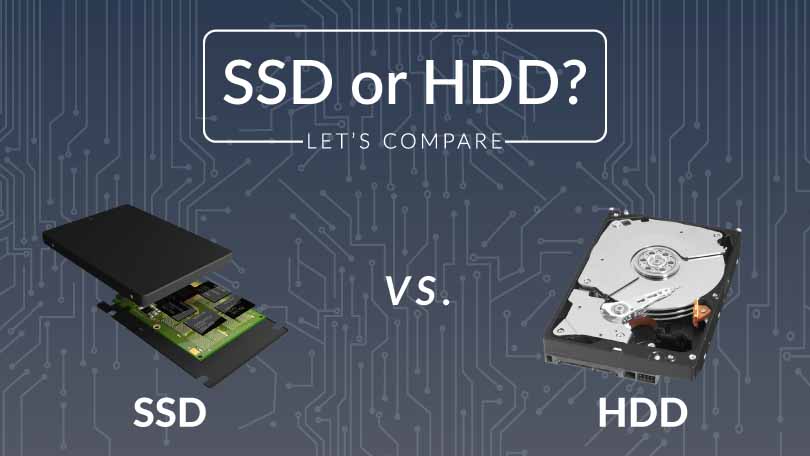If you’re thinking about upgrading your computer’s storage or buying a new one, you might be wondering: Should I go for an SSD (Solid State Drive) or an HDD (Hard Disk Drive)? Both have their advantages, but which one is better for day-to-day tasks like web browsing, office work, and media consumption? Let’s break it down.
HDDs are traditional storage devices that use spinning magnetic disks to store data. They have been around for decades and are known for their affordability and large storage capacity.
✅ Pros:
- More affordable per GB of storage
- Available in larger capacities (1TB, 2TB, or more)
❌ Cons:
- Slower read/write speeds
- More prone to failure due to moving parts
- Heavier and bulkier
SSDs use flash memory (similar to a USB drive) to store data, making them much faster and more reliable than HDDs.
✅ Pros:
- Much faster than HDDs (boots Windows in seconds)
- No moving parts, making it more durable
- Uses less power, improving battery life in laptops
- Silent operation
❌ Cons:
- More expensive per GB compared to HDDs
- Limited storage options in budget models
| Feature | HDD | SSD |
|---|---|---|
| Boot time (Windows) | 30-60 sec | 5-10 sec |
| File transfer speed | ~100 MB/s | ~500+ MB/s |
| App loading speed | Slower | Much faster |
| Noise level | Noisy (spinning) | Silent |
An SSD is at least 5-10 times faster than an HDD in real-world usage. If you’re tired of waiting for your computer to boot up or for files to open, an SSD is the way to go.
For normal tasks like:
✅ Web browsing (Chrome, Firefox, Edge)
✅ Office work (Word, Excel, PowerPoint)
✅ Watching movies & streaming
✅ Basic gaming
✅ Photo & video editing
An SSD is the best choice! It makes your system feel snappier, more responsive, and overall smoother.
However, if you need a lot of storage for cheap (e.g., for storing movies, backups, or large files), an HDD is still useful.
If your budget allows, the best setup is:
- SSD for Windows and apps (256GB or 512GB)
- HDD for storage (1TB or more)
This way, you get speed + storage without spending too much!
💡 Go for an SSD if you want a fast, reliable, and smooth computing experience. Even a small 256GB SSD is enough for most users.
💰 Go for an HDD if you need a lot of storage at a lower price but don’t mind slower speeds.
🎯 Best Option: If possible, get both—an SSD for speed and an HDD for extra storage!
Still using an HDD? Upgrade to an SSD today and feel the difference!
